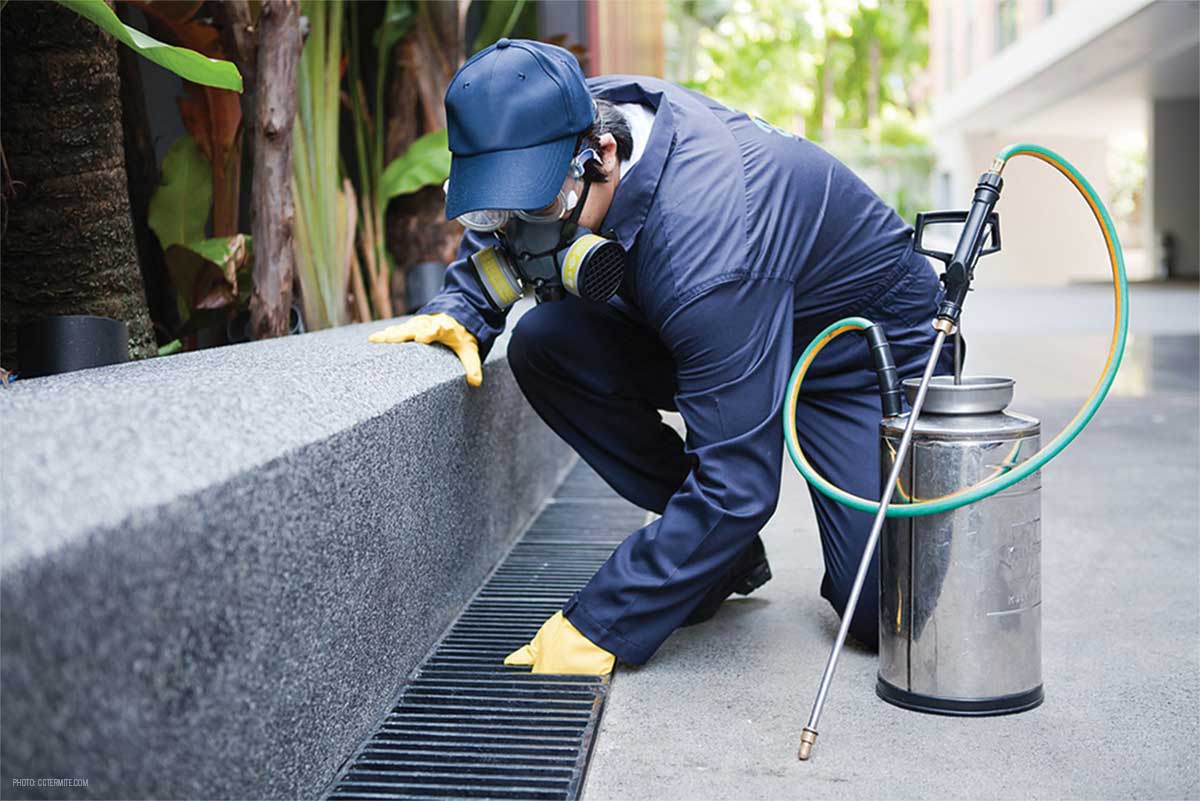Relied On Pest Control Near Me: Quick and Efficient Solutions!
Relied On Pest Control Near Me: Quick and Efficient Solutions!
Blog Article
Specialist Insect Control Techniques for Long-Term Outcomes
In the realm of parasite control, accomplishing continual effectiveness and lasting results requires a meticulous strategy that transcends plain extermination. Expert pest control methods encapsulate a detailed strategy that begins with a comprehensive examination and evaluation, adhered to by precise bug recognition to understand their actions patterns. The implementation of Integrated Insect Monitoring (IPM) principles, combined with eco-conscious therapies, creates the cornerstone of lasting parasite eradication. The real test exists in the continuous surveillance and maintenance of the dealt with areas, making certain a pest-free environment for the direct future. By diving into the details of these techniques, a much deeper understanding of professional insect control approaches for enduring results arises.
Evaluation and Evaluation
Upon entering a residential property for bug control solutions, the preliminary action is an extensive assessment and evaluation to identify the degree of the invasion and identify the most efficient treatment strategy. Expert insect control technicians are educated to thoroughly examine the facilities, trying to find indications of insect activity such as droppings, gnaw marks, nests, or any type of architectural damages. They will certainly also examine the problems that might be bring in insects, such as food resources, water leaks, or entry points.

Insect Identification and Actions

Moreover, understanding the actions of the identified parasite is vital to carrying out efficient control steps. Understanding where insects nest, what they feed on, and their activity patterns can aid pest control experts develop strategies to remove them effectively. Some pests might be nocturnal, pest control what do they do while others are more energetic throughout the day. This knowledge enables the application of treatments at optimal times for optimum effectiveness.
Integrated Pest Administration (IPM)
Integrated Pest Administration (IPM) approaches integrate numerous methods to regulate and avoid bug infestations in a lasting and eco-friendly way. pest control. By integrating approaches such as biological control, habitat adjustment, modification of social methods, and using immune selections, IPM aims to lessen making use of chemical pesticides
Among the key principles of IPM is the emphasis on avoidance. This aggressive approach involves tracking bug populaces routinely to discover any type of possible issues before they intensify. By identifying bug troubles early, pest control why not try this out measures can be carried out promptly and successfully.
Furthermore, IPM promotes using safe pest control approaches whenever feasible. This can include using all-natural killers of the insects, introducing valuable pests, or using scents to disrupt mating patterns. By lowering reliance on chemical pesticides, IPM not just protects the environment but additionally helps preserve an equilibrium in the ecosystem.
Environmentally-Friendly Treatments
Applying eco-conscious approaches in pest control treatments can efficiently address problems while focusing on environmental sustainability. Environmentally-friendly treatments concentrate on lessening the impact of parasite control techniques on ecological communities, non-target organisms, and human health. These methods frequently include the use of natural killers, such as ladybugs or nematodes, to control pest populaces, minimizing the demand for chemical treatments. In addition, methods like environment adjustment, such as changing moisture degrees or removing food sources, can aid prevent pests without using hazardous compounds.
One more key element of environmentally-friendly treatments is making use of organic and naturally degradable products that break down promptly without leaving damaging deposits in the environment. Organic pesticides obtained from plants like chrysanthemums or neem supply efficient bug control while posing very little risk to non-target species. Using methods helpful site like warm therapies or pheromone catches can target particular bugs with precision, lowering the total environmental effect of pest control methods.
Recurring Monitoring and Upkeep
Continuous security and upkeep are crucial components of reliable parasite control management. Ongoing tracking plays a critical role in making sure that parasite infestations are detected early and managed without delay. Routine evaluations by trained experts are necessary to recognize any kind of indicators of parasite task, assess the efficiency of previous treatments, and make adjustments to the parasite control strategy as required. By keeping an eye on bug populations over time, parasite control professionals can track patterns, anticipate possible problems, and implement safety nets to reduce the risk of future problems.
In enhancement to monitoring, maintenance methods are essential for long-term insect control success. This includes carrying out correct hygiene measures to eliminate prospective food and water sources for bugs, securing off access factors to prevent insects from going into the facilities, and resolving any kind of architectural issues that could help with bug problems (pest control near me). By incorporating continuous tracking and upkeep right into an incorporated pest management approach, organizations can make certain a pest-free environment and safeguard their home against costly damages and wellness dangers
Final Thought
To conclude, using expert insect control techniques such as extensive evaluation and assessment, exact bug identification and understanding of their behavior, incorporated insect administration strategies, environmentally-friendly therapies, and continuous monitoring and upkeep are necessary for accomplishing long-term cause bug control. By executing these approaches, people can efficiently take care of bug infestations and keep a pest-free atmosphere in a sustainable manner.
Report this page